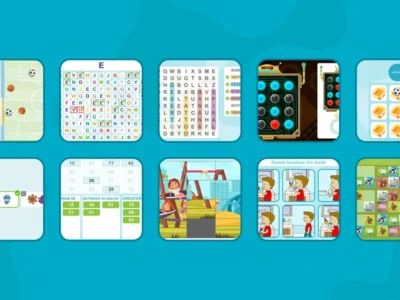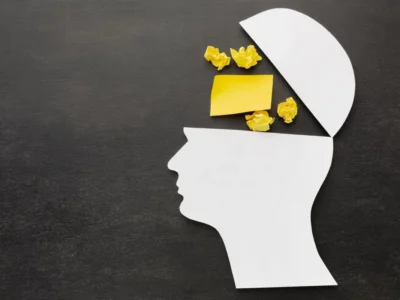Rafael A. Salas Muriel, PhD in psychology, explores in this article, from a neuropsychological perspective, what THC is, its effects on the brain, the possible neuropsychological risks associated with its use, and how neuropsychological assessment can contribute to the treatment of people who suffer some kind of impairment after having used this substance, improving their quality of life.
The consumption of tetrahydrocannabinol (THC), the main psychoactive component of cannabis, is a global phenomenon that affects millions of people worldwide.
What is THC?
Tetrahydrocannabinol (THC) is one of more than 100 cannabinoids identified in the cannabis plant. This compound is known for its psychoactive effects, which are responsible for the feeling of euphoria or “high” experienced by users. THC acts on the brain’s cannabinoid receptors, mainly the CB1 and CB2 receptors, which are involved in a variety of cognitive and emotional functions.
Neuropsychological alterations associated with THC use
THC use can have several immediate effects on the brain, including the alteration of time perception, increased appetite, impairment of short-term memory, and changes in mood. However, the effects of THC can vary significantly depending on dose, frequency of use, and individual susceptibility.
Below are some of the main cognitive and emotional alterations that may arise from THC use:
1. Memory impairment
THC significantly affects short- and long-term memory. Studies have shown that THC interferes with the hippocampus’s ability to consolidate new memories, resulting in difficulties remembering recent information (Ranganathan & D’Souza, 2006). Chronic cannabis users often present problems retaining and retrieving information, which can affect their academic and work performance.
2. Attention deficits
THC use can impair attention and concentration. People under the effects of THC may experience difficulties staying focused on a specific task and filtering out irrelevant environmental stimuli (Hart et al., 2010). This attentional deficit can reduce efficiency in performing everyday tasks and negatively affect work or academic performance.
3. Executive dysfunction
The executive functions, which include planning, decision-making, problem-solving, and impulse control, are also affected by THC use. People who use cannabis regularly may show difficulties organizing their activities, establishing and following plans, and making appropriate decisions (Crean et al., 2011). These dysfunctions can lead to impulsive behaviors and problems managing daily life.
4. Alterations in emotional processing
THC can influence emotional regulation and emotion processing. Users may experience mood changes, such as euphoria or anxiety, which can be difficult to manage (Volkow et al., 2014). Chronic THC use has been associated with a higher risk of developing mood disorders, such as depression and anxiety, due to its impact on the brain’s neurotransmission systems.
5. Thought disorders
THC use can induce alterations in thought and perception. Some users may experience disorganized thinking and difficulties following a coherent line of thought. In extreme cases, THC use can trigger psychotic symptoms, such as hallucinations and delusions, especially in individuals with a genetic predisposition to such psychotic disorders (Di Forti et al., 2019).
6. Reduced processing speed
THC can slow the speed of information processing. This reduction in how quickly the brain processes information can affect the ability to react rapidly to stimuli and make real-time decisions (Block et al., 2002). This is especially relevant in situations that require a quick and precise response, such as driving vehicles.
7. Impact on motivation
THC use has been associated with amotivational syndrome, characterized by a decrease in motivation and interest in previously rewarding activities. People with amotivational syndrome may show apathy, lack of energy, and a decreased ability to initiate and complete tasks (Lundqvist, 2005). This impact on motivation can affect productivity and overall well-being.

Subscribe
to our
Newsletter
Neuropsychological assessment
Neuropsychological assessment in patients who use THC is a fundamental step to identify and quantify the cognitive and emotional deficits associated with this substance.
This assessment begins with a detailed clinical interview that explores the history of THC use, current symptoms, and the functional impact on the patient’s life. A series of specific neuropsychological tests are then administered to evaluate various cognitive domains. These tests include the Stroop Test, which measures selective attention and inhibitory control, the Spain-Complutense Verbal Learning Test (TAVEC), which assesses verbal memory and learning capacity. These tools allow neuropsychologists to obtain a detailed cognitive profile of the patient, identifying areas of impairment that require intervention.
Another commonly used test in neuropsychological assessment is the Halstead-Reitan Neuropsychological Battery, which provides a global evaluation of neurocognitive functions and can detect dysfunctions in multiple brain areas. This battery includes subtests such as the Category Test, which evaluates abstract reasoning and cognitive flexibility, and the Trail Making Test, which measures attention, processing speed, and executive function. Nevertheless, every assessment protocol must always include personalization for each clinical case.
Finally, neuropsychological assessment may include specific tests to measure the impact of THC on executive functions and impulse control.
The Wisconsin Card Sorting Test (WCST) is particularly useful for assessing cognitive flexibility and the ability to change strategy in response to feedback. The Wechsler Digit Span Test, which is part of the WAIS-IV, is used to assess attention and working memory. These assessments allow neuropsychologists to design personalized interventions that address the specific deficits identified in each patient. Using a complete battery of neuropsychological tests ensures a thorough and accurate evaluation, providing a solid foundation for treatment and cognitive rehabilitation in patients who use THC.
Neuropsychological intervention
Neuropsychological intervention in patients who use THC focuses on addressing the cognitive and emotional deficits associated with this substance, employing strategies such as cognitive rehabilitation and cognitive-behavioral therapy (CBT).
The cognitive rehabilitation aims to improve compromised cognitive skills through structured and repeated exercises focused on areas such as memory, attention, and executive function.
A valuable resource in this process is NeuronUP, as it offers a wide range of activities designed for cognitive rehabilitation. NeuronUP provides mental health professionals the ability to personalize treatment according to each patient’s individual needs, with specific exercises to improve various cognitive functions. In addition, the platform facilitates monitoring the patient’s progress over time, allowing adjustments to the intervention as needed.
CBT complements this approach by helping patients develop coping strategies and manage cravings, thereby improving their ability to control THC use and its negative effects.
The combination of these techniques in a comprehensive approach can lead to a significant improvement in the quality of life of people affected by THC use.
Neuropsychological intervention in patients who use THC also includes a crucial psychoeducation component.
This approach focuses on educating patients about the effects of THC on the brain and how these can influence their behavior and mental health. Psychoeducation provides patients with a deeper understanding of how THC use can affect their cognitive and emotional functions, enabling them to make informed decisions about their substance use.
Moreover, psychoeducation helps patients identify and manage triggers that may lead to THC use, developing relapse prevention strategies and coping skills to maintain abstinence. By providing patients with this type of knowledge and practical tools, psychoeducation plays a key role in reducing THC use and improving overall well-being.
Family intervention is another essential part of neuropsychological treatment for patients who use THC. Involving the family in the intervention process can provide vital support and foster a more favorable recovery environment.
Family intervention includes therapy sessions in which family members are educated about the effects of THC and taught how to properly support the patient on their path to recovery. This can include implementing effective communication techniques, establishing healthy boundaries, and promoting a drug-free lifestyle.
In addition, family intervention helps family members recognize and manage their own emotional responses to the patient’s behavior, reducing stress and improving family dynamics. By strengthening the patient’s support system, family intervention can significantly increase the chances of success in rehabilitating THC use.
Future perspectives
Future perspectives in the neuropsychological treatment of THC use are marked by an increasingly personalized and neuroscience-based approach. Advances in understanding the neurobiological mechanisms underlying THC effects are expected to lead to more specific and effective therapies targeting cognitive and emotional deficits.
What is clear is that any addiction treatment must be carried out through a multidisciplinary approach that integrates the latest advances in neuroscience, pharmacology, digital technology, and psychotherapy.
Bibliography
- Block, R. I., O’Leary, D. S., Ehrhardt, J. C., Augustinack, J. C., Ghoneim, M. M., Arndt, S., & Hall, J. A. (2002). Effects of frequent marijuana use on brain tissue volume and composition. NeuroReport, 13(4), 509-512.
- Crean, R. D., Crane, N. A., & Mason, B. J. (2011). An evidence-based review of acute and long-term effects of cannabis use on executive cognitive functions. Journal of Addiction Medicine, 5(1), 1-8.
- Di Forti, M., et al. (2019). The contribution of cannabis use to variation in the incidence of psychotic disorder across Europe (EU-GEI): a multicentre case-control study. The Lancet Psychiatry, 6(5), 427-436.
- Hart, C. L., van Gorp, W., Haney, M., Foltin, R. W., & Fischman, M. W. (2010). Effects of acute smoked marijuana on complex cognitive performance. Neuropsychopharmacology, 26(7), 1096-1107.
- Lundqvist, T. (2005). Cognitive consequences of cannabis use: Comparison with abuse of stimulants and heroin with regard to attention, memory and executive functions. Pharmacology Biochemistry and Behavior, 81(2), 319-330.
- Ranganathan, M., & D’Souza, D. C. (2006). The acute effects of cannabinoids on memory in humans: a review. Psychopharmacology, 188(4), 425-444.
- Volkow, N. D., et al. (2014). Adverse health effects of marijuana use. New England Journal of Medicine, 370(23), 2219-2227.
If you liked this article about the neuropsychology of THC use, you will probably be interested in these NeuronUP articles:
“This article has been translated. Link to the original article in Spanish:”
Neuropsicología del consumo de THC







 Global Neuropsychology Congress: the congress that brought the world together in Porto
Global Neuropsychology Congress: the congress that brought the world together in Porto
Leave a Reply